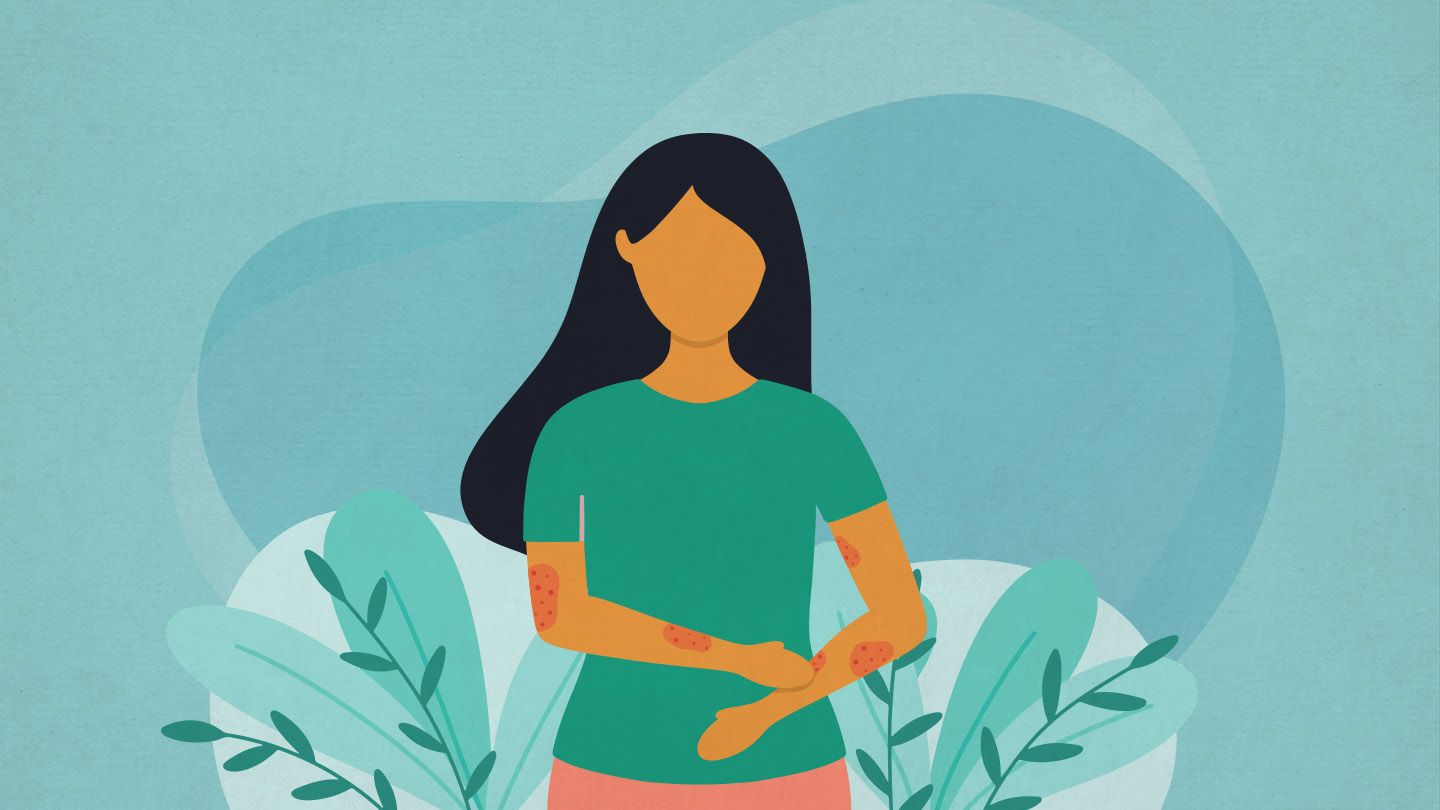
Eczema is a very common skin condition that causes itchy, red, dry, and irritated skin. The condition is also called atopic dermatitis.
What causes eczema?
The cause of eczema isn’t completely understood. However, researchers think that it’s triggered by an overactive immune system.
Additionally, researchers have found that some people with eczema don’t make enough of a protein called filaggrin (filament aggregating protein). This protein is responsible for helping your skin stay moisturized and healthy.
Eczema triggers
An eczema flare-up happens when one or more eczema symptoms appear on the skin. Common triggers include:
- Chemicals or preservatives found in cleansers and detergents
- Synthetic fabrics
- Sweating
- Temperature changes
- Food allergies
Types of Eczema

Symptoms of eczema
The main symptom of eczema is itchy, dry, rough, flaky, inflamed, and irritated skin. It can flare up, subside, and then flare up again.
How is eczema treated?
The right treatment for you will depend on the type and severity of your eczema. Options include:
Medications
Oral over-the-counter (OTC) antihistamines can relieve itching. They work by blocking allergic reactions triggered by histamine. However, they can cause drowsiness, so it’s best to take them when you don’t need to be alert.
Therapies
Light therapy, or phototherapy, uses ultraviolet light or sunlamps to help prevent immune system responses that trigger eczema. It requires a series of treatments and can help reduce or clear up eczema. It can also prevent bacterial skin infections.
Alternative treatments
Alternative treatments may help calm the symptoms of eczema. Because of potential side effects, always check with your doctor before using an herbal supplement or beginning an exercise routine. Popular home remedies include:
- Green, black, or oolong tea
- Coconut, sunflower, borage, and primrose oils
- Acupuncture
Most eczema comes and goes over time. Atopic dermatitis is usually worst in childhood and improves with age. Other forms of eczema may stay with you throughout your life, although you can take measures to reduce your symptoms.










